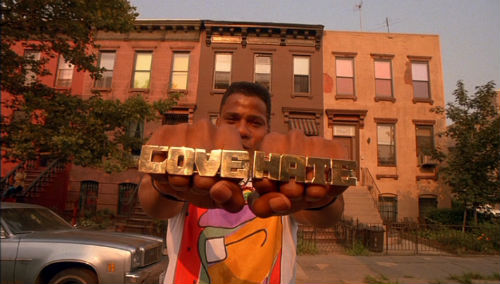When "Crash (2004)" came out it was a film I was very interested in a seeing and it is a film that I have watched many times since I first saw it.
One thing however that I have heard from a lot of people including film critics is "we get it, we get racism is bad, we don't need it shoved in our faces" & I here the same things about the film "American History X" but thing is I think this is wildly over looking the idea of the films to begin with. The thing about the two films is no-one gets off lightly, it is not a case of "white power is good, black people are bad", everyone is given the same treatment and exposed one way or another.
I personally think that this is something that is important to make and write stories of. We as a society have come a long way but there are still ways to go and for this reason I did not come to the same conclusions as the critics.
But what do you think?
One thing however that I have heard from a lot of people including film critics is "we get it, we get racism is bad, we don't need it shoved in our faces" & I here the same things about the film "American History X" but thing is I think this is wildly over looking the idea of the films to begin with. The thing about the two films is no-one gets off lightly, it is not a case of "white power is good, black people are bad", everyone is given the same treatment and exposed one way or another.
I personally think that this is something that is important to make and write stories of. We as a society have come a long way but there are still ways to go and for this reason I did not come to the same conclusions as the critics.
But what do you think?
__________________
twitter: @ginock
livejournal film reviews: http://windsoc.livejournal.com/
photos: http://www.instagram.com/christopherwindsor
twitter: @ginock
livejournal film reviews: http://windsoc.livejournal.com/
photos: http://www.instagram.com/christopherwindsor
